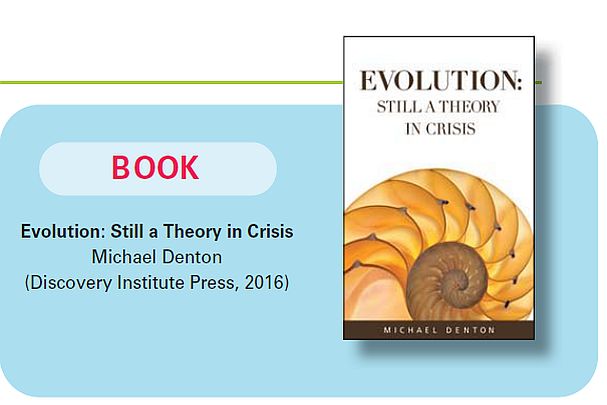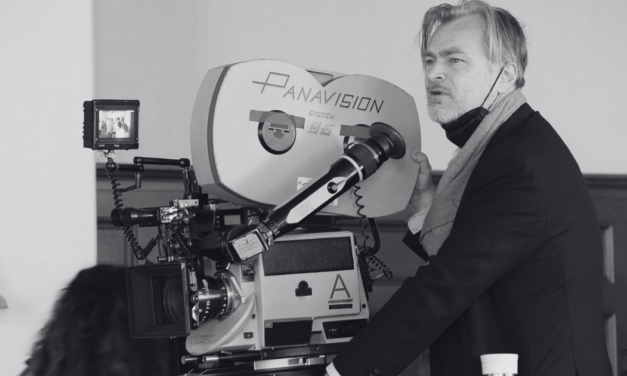
This article first appeared in the Christian Research Journal, volume 39, number 4 (2016). For further information or to subscribe to the Christian Research Journal please click here.
In 1985, Michael Denton published Evolution: A Theory in Crisis, challenging the Darwinian assumption that evolution occurred through a lengthy series of minute changes (all of which were functional intermediates). He argued that the natural system was not a continuum of development, as Darwin had advocated, but rather a collection of discontinuities that did not develop gradually, leading to a series of somewhat fixed specific types. Therefore, a basic premise of Darwinian evolution was wrong. For a theory that often has been supported by the idea that scientists uniformly accept Darwinian evolution, this new idea was anathema. However, more recent developments in biology have expanded the areas of doubt with regard to the mechanism of evolution. Denton’s new book continues the challenge he raised thirty years ago.
The traditional Darwinian proposition has been that evolution occurs through a series of minute changes called adaptive transitional forms, and each positive change leads to an increase in the fitness of the organism. In reality, the overwhelming majority of changes produce an organism less fit for survival. The key point here is that any change that does not make the organism less fit must of necessity make a specific contribution to its survival.
Denton argues that most life forms exhibit what he terms “non-adaptive order” (p. 13). He points to similarities in the number of digits on feet and hands, the number of vertebrae in mammals, and similarity of structures in insects. All of these suggest some sort of natural pattern that is intrinsic to the class of organism and not just an obvious functional adaptation.
Eluding Stereotypes. Denton does not fit the stereotypical picture of someone who challenges one of the basic paradigms of modern science. Born in 1943, Denton obtained a medical degree from Bristol University in 1969 and later received a PhD in biochemistry from King’s College London in 1974. He has held positions at several universities with a focus on genetic diseases, making significant contributions to knowledge of genetic eye diseases in Pakistan and India, where he could find large inbred populations that have these diseases. Possessing a great love of science and having been deeply involved in basic and applied medical research, he definitely cannot be called “anti-science.”
He also does not fit the “science-denying religious fundamentalist” stereotype. Denton was raised in a Christian home, but calls himself an agnostic. While accepting the idea of common ancestry, he still sees design and pattern in life forms. His ties with the Discovery Institute provide further proof that the institute is not a Christian evolution-bashing organization. While arguing for intelligent design of life, the institute (though, yes, mainly Christian) has Jewish, Muslim, and atheist/agnostic adherents. In the book, Denton uses the term “intelligent design” on a few occasions, but does not make that idea a central argument for his thinking.
Art and Evolution. A video entitled Biology of the Baroque, based on the book and narrated by Denton, is available on YouTube.1 The video summarizes and illustrates the major points that Denton is making. Nonadaptive functionalism is strikingly illustrated in the video using examples from art, music, and architecture to show how humans have employed the “extras” that gave extraordinary beauty to a building, an art work, or a piece of music, but did not contribute to the overall functionality of the specific entity. The work could have existed without the additional features, but they contributed greatly to the esthetic enjoyment of the final product.
Evidence of the thoroughness of Denton’s arguments is found in the notes at the end of the book. Some sixty pages of references and comments show the basics of the controversy and the depth with which the information must be dealt. Denton does not just pick the easy opposition but takes on the major proponents of Darwinian evolution in his coverage.
This is not an easy book to read; there is a wealth of biology information to digest. In some ways, Denton falls short of making a completely convincing argument against Darwinian thought, but he does make a good case for exploring other possibilities for the development of life. —Donald F. Calbreath
Donald F. Calbreath, PhD, retired in 2006 after twenty-two years on the chemistry faculty at Whitworth University in Spokane, Washington. His research interests involve the relationships between brain neurochemistry and human behavior.
- Discovery Science, “The Biology of the Baroque”, published February 11th, 2016. (https://www.youtube.com/ watch?v=FothcJW-Quo.)








